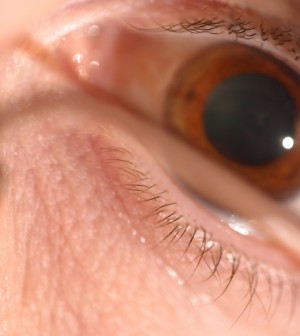- Could Your Grocery Store Meat Be Causing Recurring UTIs?
- Are You Making This Expensive Thermostat Error This Winter?
- Recognizing the Signs of Hypothyroidism
- 10 Strategies to Overcome Insomnia
- Could Artificial Sweeteners Be Aging the Brain Faster?
- Techniques for Soothing Your Nervous System
- Does the Water in Your House Smell Funny? Here’s Why
- Can a Daily Dose of Apple Cider Vinegar Actually Aid Weight Loss?
- 6 Health Beverages That Can Actually Spike Your Blood Sugar
- Treatment Options for Social Anxiety Disorder
U.S. Glaucoma Cases Expected to Surge by 2030

Glaucoma affects more than 3 million Americans, but that number is expected to surge to more than 4 million by 2030, eye experts say.
Glaucoma is a group of incurable eye diseases that gradually lead to vision loss. There are two main types of glaucoma, but the most common form, which typically affects older people, causes an increase in pressure inside the eye that damages the optic nerve, according to the Glaucoma Research Foundation.
Glaucoma is the No. 1 cause of preventable blindness, but the condition often develops without warning, the foundation said. Medication or surgery can help slow or prevent vision loss, but many people with glaucoma aren’t even aware they have it.
In many cases, the condition isn’t detected until people lose side — or peripheral — vision. Eventually, glaucoma may cause people to permanently lose up to 40 percent of their vision, the foundation added.
Worldwide, 4.5 million people are blind due to glaucoma, according to the World Health Organization. In the United States, up to 12 percent of all cases of blindness stem from the disease. Blacks, Hispanics and Asians are disproportionately affected, the Glaucoma Research Foundation notes.
Others at greater risk for glaucoma include:
- Older people,
- People with relatives who have glaucoma,
- People with diabetes,
- People who are very nearsighted.
As the population ages, a blindness epidemic may develop if glaucoma awareness doesn’t increase and more people don’t get routine eye exams, the foundation warns. The group says the best way people can protect their vision is to have regular comprehensive eye exams, which can lead to earlier detection and treatment.
More information
The U.S. National Eye Institute provides more information on glaucoma.
Source: HealthDay
Copyright © 2026 HealthDay. All rights reserved.










